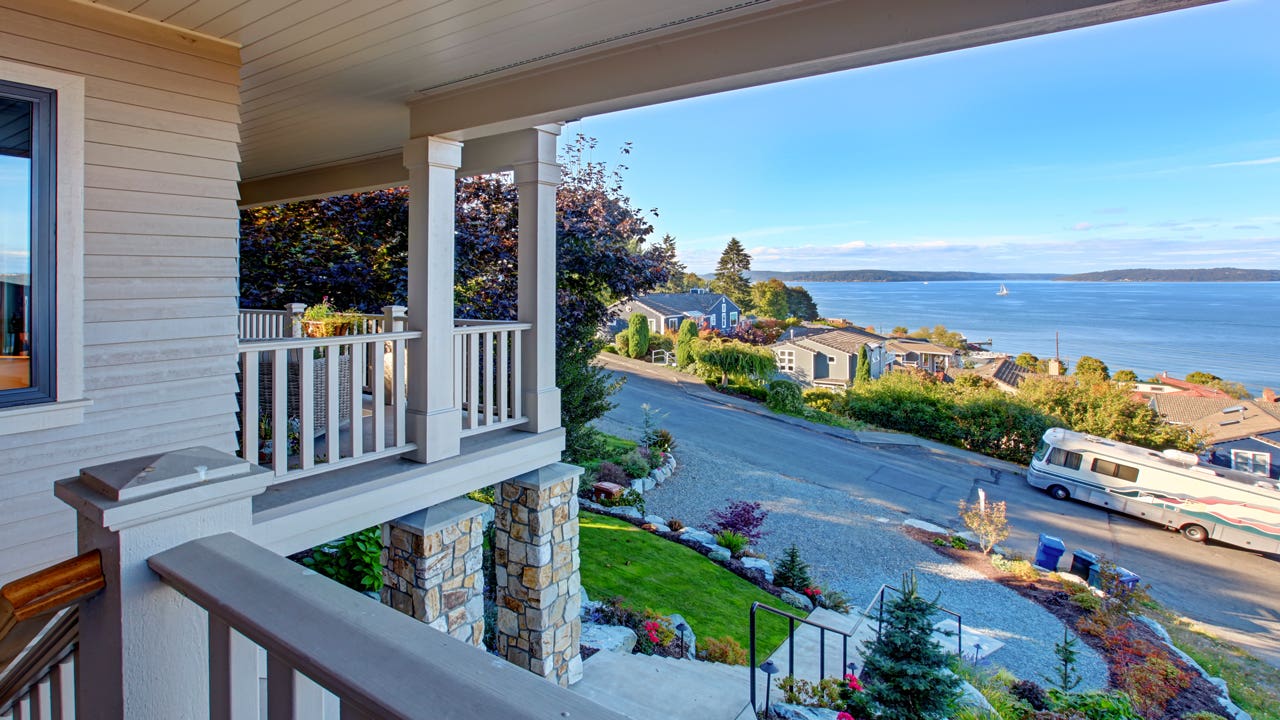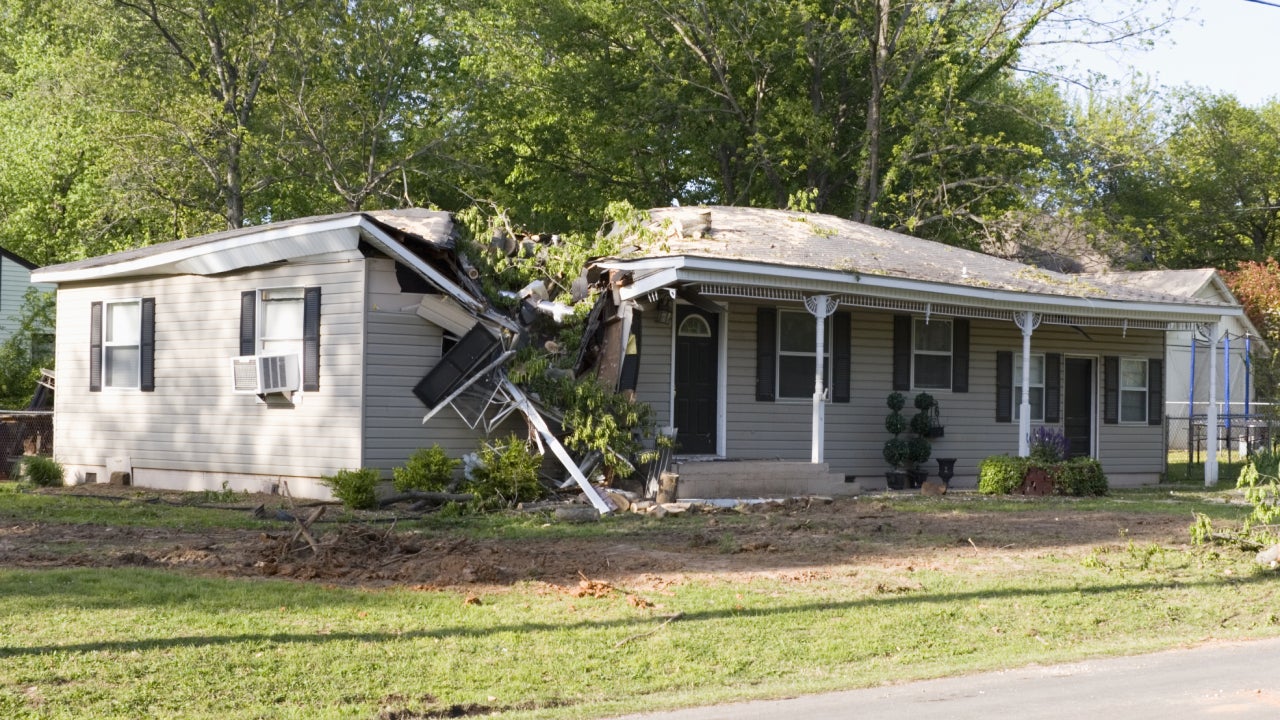Selling a home in Washington

If you own a home in Washington state, you’re sitting on a very valuable asset. According to data from CoreLogic, the average homeowner in Washington state with a mortgage gained $114,000 of equity between the first quarter of 2021 and the first quarter of 2022. That surge in value might have you thinking about cashing in.
Before you decide to sell your home, though, it’s important to understand that the housing market is slowly coming back down to earth. While median home prices in Washington topped $653,000 in May of this year, they have since decreased to less than $600,000, according to Redfin data. And with mortgage rates increasing, selling a home doesn’t look quite as easy as it did at the beginning of 2022 — particularly in high-priced Seattle, where homes have been staying on the market longer.
If you think it’s time to move out and move on from your current home in Washington state, here’s everything you need to know to get your house and your finances ready to sell.
Are you ready to sell?
Should you sell your house now, or should you wait? It’s a tough question to answer, and you’ll need to give careful consideration to your personal plans. If you’re planning to move somewhere with a lower cost of living or thinking about downsizing, it might be a great time to list your home. If you’re hoping to sell your house while buying another at the same time, you’ll need to have a game plan in case the timing doesn’t line up well. And be sure to use Bankrate’s mortgage calculator to get a sense of what your new monthly housing payments will be based on today’s mortgage rates. If you’re comfortable with the costs of a new home, your next step is to get your current one ready to impress buyers.
Preparing to sell
Is it worth upgrading your home before you sell?
If you think sinking a bunch of money into home upgrades before you sell will help you get a bigger price tag, think again. Most major home improvements don’t actually recoup their value at resale, so finishing the basement might just wind up delaying your sale and costing you more money. You’re likely better off exploring cheap and easy ways to boost your property value instead.
What should you repair before you sell?
Repairs are a different story. Since a buyer is going to hand over a large chunk of money to buy your house, they probably don’t want to immediately spend even more cash to deal with lingering issues. If you were in the buyer’s shoes, what issues might bother you? A pre-listing inspection can identify problem areas before a buyer’s inspection uncovers them. However, you don’t have to fix everything. Ask a real estate agent for some advice on what’s worth investing in and what’s better left untouched.
Should you pay to stage your home?
Depending on the condition of your property, staging your home can be a smart move. If it’s especially cluttered, buyers might be turned off by crowded countertops and overstuffed rooms. And on the other hand, if you’ve already moved out, buyers might not be able to envision the empty house as a home. A professional stager can make the right decisions to turn lackluster into love at first sight. It can make a big difference in your earnings, too: 73 percent of staged properties sold for more than their list price in 2021, according to data from the Real Estate Staging Association.
When is the best time to sell a house in Washington?
In general, the best time to sell a house is when it will sell the fastest. Historically, that timeframe tends to be in the summer months, when buyers are more active and homes spend the fewest number of days on the market. However, Redfin data shows a shift this summer in Washington. The median number of days on market increased from just 9 in June 2022 to 17 in August — likely a signal of a cooling market due to the combination of high prices and high mortgage rates.
It’s equally important to know when not to list your home in Washington state. Over the past three years, January has been the worst month to sell a house; it’s when houses sit on the market longest here.
Find a local Washington real estate agent
The changes in the housing market make finding the right real estate agent more important than ever before. Due to high rates and high inflation, sellers in Washington (and everywhere) face more headwinds in 2022. Having a knowledgeable local agent on your team can help you avoid potential problems. While you’ll have to pay a commission fee for their services — traditionally 3 percent to your agent and another 3 percent to the buyer’s agent — that cost is well worth the investment. The most recent data from the National Association of Realtors shows that the average agent-assisted sale closed for $58,000 more than an FSBO (For Sale By Owner) listing. Plus, it’s not just about money. Selling a home requires a lot of time and effort. Rather than take over what can feel like a full-time job (listing and marketing the home, coordinating showings, negotiating with buyers), you can hand off those headaches to your real estate agent.
One important consideration: Dual agency is legal in Washington state. So, your agent may also represent the individual who wants to buy your house. There is a potential conflict of interest in that arrangement, so think carefully about whether you’re OK with it — if you are, you’ll have to provide written consent.
Price your home competitively
If you’re thinking about listing your home in Washington, you’re probably already dreaming about dollar signs. But how much is your home actually worth? You can take some initial steps to figure it out on your own, but it’s important to recognize that algorithms and online estimators are often inaccurate, and can be woefully off-base when it comes to a property’s true fair market value. The best pricing strategy is to work with your real estate agent to get a thorough review of comps in the area, which will give you a better sense of what buyers have been willing to pay for similar properties similar to yours in. Your ultimate goal with a competitive pricing strategy is to actually stir up competition: By attracting multiple buyers, you increase the odds of a higher offer.
Documents and disclosures in Washington
Washington state law requires most sellers to complete a property disclosure statement with knowledge of any defects, including roof leaks, basement flooding, fireplace issues and a range of other questions. You have five business days to provide this disclosure to the buyer, and once received, the buyer has three business days to either accept it or cancel the contract.
Additionally, if your property is part of a homeowners association, be prepared to share information about the association’s financial health and any governing bylaws that will apply to a new owner.
Need to sell your home fast?
Washington homes are spending more time on the market these days. If you need to speed things up, here are three ways to sell your house fast.
- Find an iBuyer: If your home meets the right criteria, iBuying companies will make you a quick online offer. (The “i” stands for instant.) RedfinNow, one of the biggest, buys homes in the Seattle area and says it can close in just 10 days.
- Sell for cash: There are also plenty of real estate investment companies that buy houses for cash. Some are national, and others, like EZ Offer, specialize in the Pacific Northwest region. Cash purchases are not uncommon in Washington: In the Spokane area alone, all-cash deals accounted for 20 percent of home sales in 2021, according to ATTOM Data Solutions.
- List as-is: If you want to avoid dealing with negotiations for repairs — a time-consuming piece of the home selling puzzle — consider listing the property as-is. This label acts as an upfront declaration that buyers need to deal with any areas of concern on their own; you aren’t open to back-and-forth discussions.
The closing
As the seller, you have two main responsibilities leading up to your closing: Pack up your belongings to move, and pay for your end of the deal. The biggest line item will be paying your agent and the buyer’s real estate agent — traditionally a total of 6 percent of the purchase price. So, if you sell your place for $400,000, you’ll be paying $24,000 in commission fees. There are plenty of other costs that fall on the seller’s shoulders in Washington state. In 2021, the average closing costs added up to nearly $14,000, according to ClosingCorp. Here’s a rundown of the main expenses that you’ll need to cover.
Cost of selling a home in Washington
- Title insurance: Sellers usually cover the cost of a title insurance policy for the new owner in Washington state. Rates vary, but for reference, title insurance on an $800,000 home in King County would be around $1,668.
- Excise tax: Commonly known as real estate transfer taxes in most states, Washington state refers to this cost as a real estate excise tax (REET), and it is the seller’s responsibility. It’s a graduated tax where the first $500,000 of a sale is taxed at 1.1 percent of the purchase price, with a higher rate (1.28 percent on $500,000 to $1.5 million sales, increasing all the way to 3 percent on homes valued over $3 million) impacting any additional amount. For example, if you sold your home in Washington for $600,000, you would owe a state excise tax of $6,780. There is an additional local excise tax in many places, too; it typically adds another 0.25 percent to 0.50 percent of the purchase price.
- Attorney fees: You are not legally required to hire a real estate attorney in Washington state — but it’s smart to have a legal professional on your side anytime you’re dealing with confusing contract language and large sums of money. The cost of a lawyer will vary based on their rate and the number of hours it takes to complete your transaction.
- Concessions: Be prepared for requests for concessions based on a buyer’s home inspection report. This is a normal part of the process. You don’t have to agree to them, but if you do, you’ll pay for a portion of their closing costs and sacrifice some of the proceeds from the sale.
Take the first step
If you’re ready to move forward with your sale, it’s time to find the right real estate agent. Realtors all have different levels of expertise, certifications and approaches to a sales strategy. Set up interviews with a few different professionals, and ask questions to find the perfect fit for your property listing.
FAQs
-
You have a few options. The easiest route is to sell to an iBuyer, which can be done quickly and online. It’s convenient, but you likely won’t get as high a price as you would with a traditional sale. If you want the best price, hiring a real estate agent is your best bet. Agents are experts who know how to do all the work of crafting and marketing a listing, coordinating showings and negotiating with buyers. The most challenging route is to list the property on your own as a For Sale By Owner (FSBO) listing — this may save you some money in real estate commissions, but it is quite a lot of work.
-
Sellers are responsible for paying a real estate excise tax in Washington (often called transfer taxes in other states). At the state level, you’ll pay a percentage of the sales price — it starts at 1.1 percent for properties that sell for $500,000 or less, ranging up to 3 percent on properties that sell for $3 million or more. There is also a local real estate excise tax in most places across the state, typically an additional 0.25 percent or 0.50 percent of the sales price. These taxes add up to a sizable chunk of your closing costs. In 2021, the average closing in Washington state included more than $9,000 of taxes, according to ClosingCorp.
-
Technically, no. The state of Washington does not require you to hire a real estate attorney to sell your house. However, it’s always smart to have a legal expert on your side when dealing with any transaction that involves complex contracts and large amounts of money.
Why we ask for feedback Your feedback helps us improve our content and services. It takes less than a minute to complete.
Your responses are anonymous and will only be used for improving our website.
You may also like

Cheapest car insurance for seniors in 2025

What disasters does home insurance cover?

Closing on a house: What to expect



